La Grande Terreur
Les purges staliniennes des années 30
Un historien britannique réputé pour ses recherches sur l'Union soviétique. Son travail se concentre sur l'exposition des vérités des régimes oppressifs et de leur impact sur la vie humaine. Il écrit avec une perspicacité pointue et un souci méticuleux du détail, rendant vivants pour le lecteur des périodes historiques sombres.

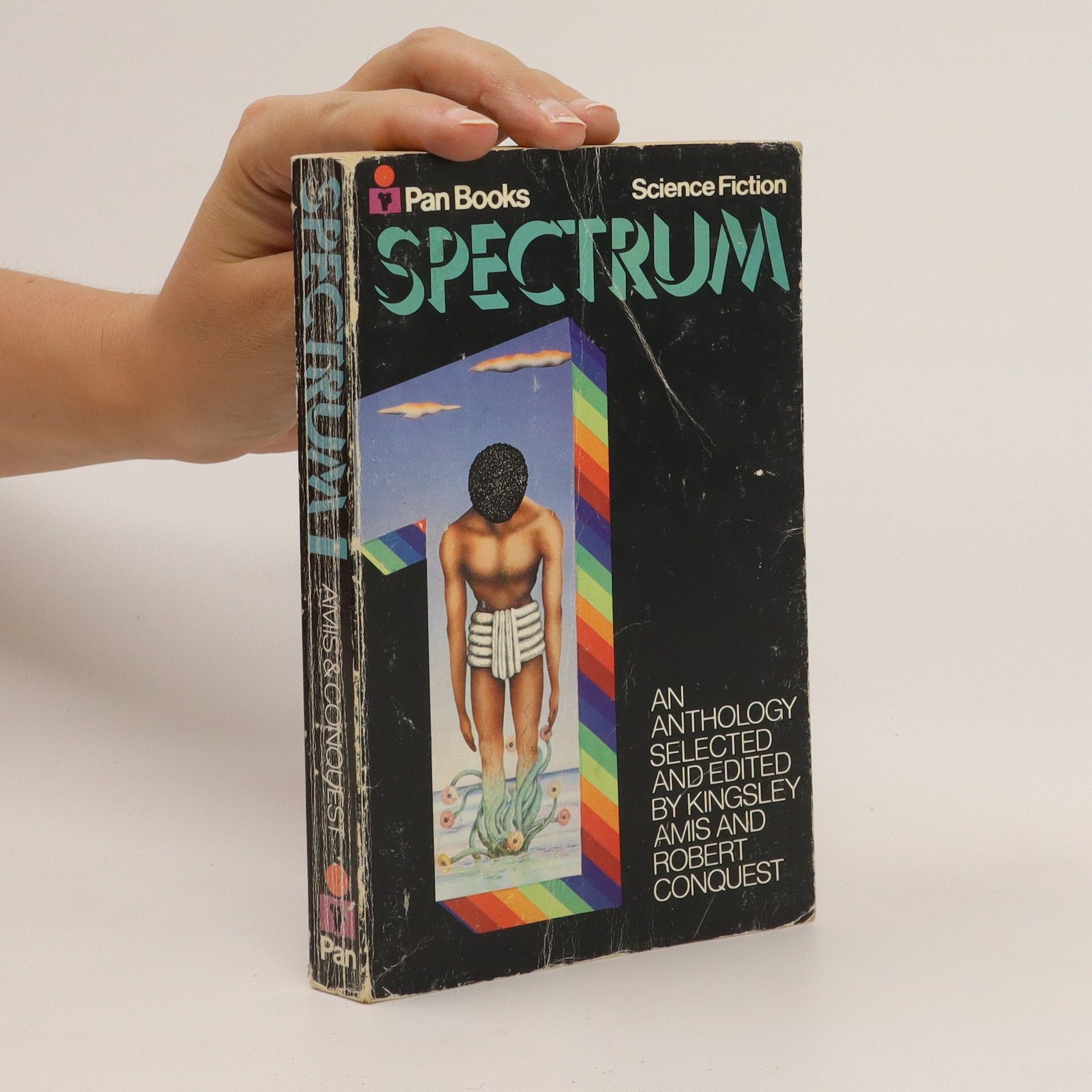
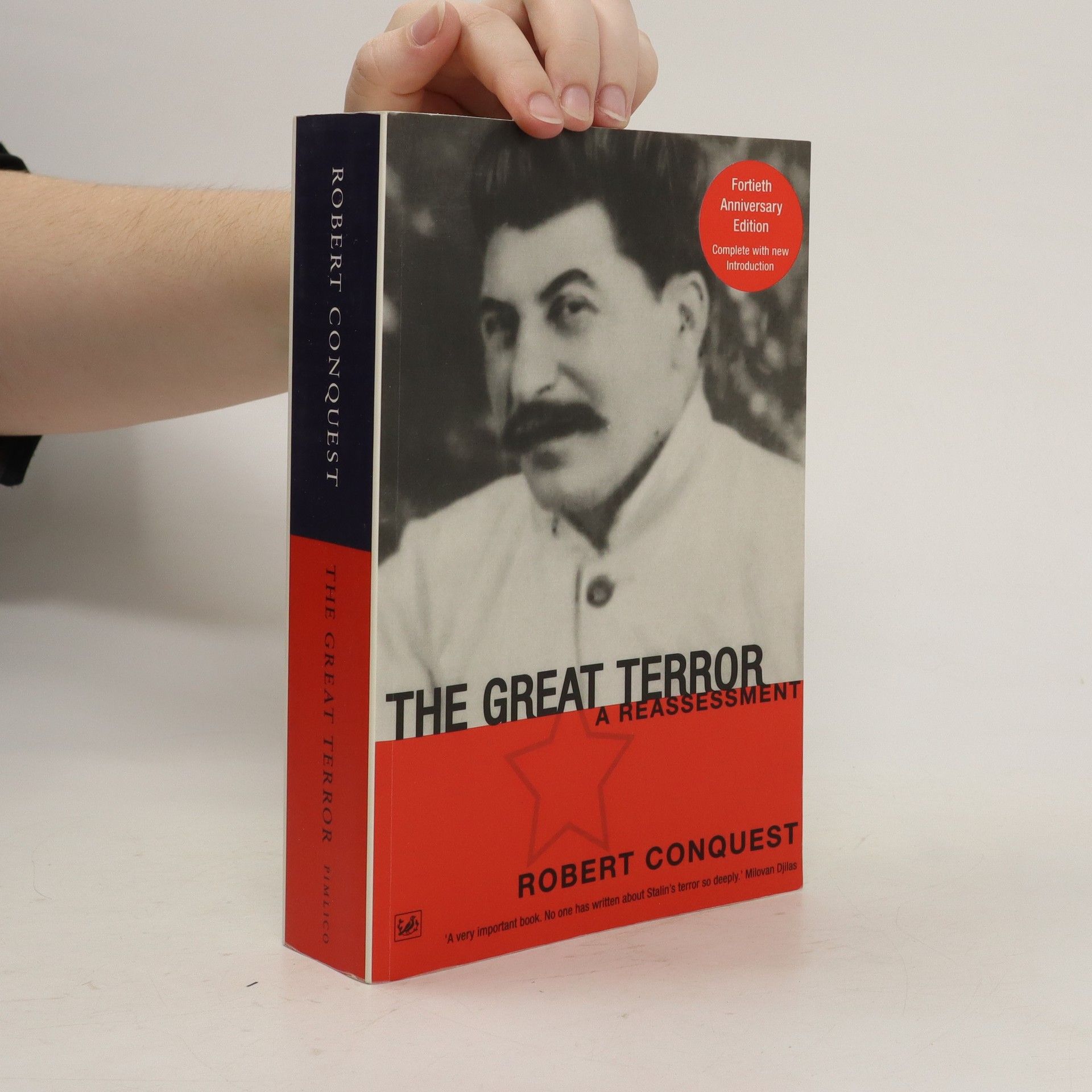

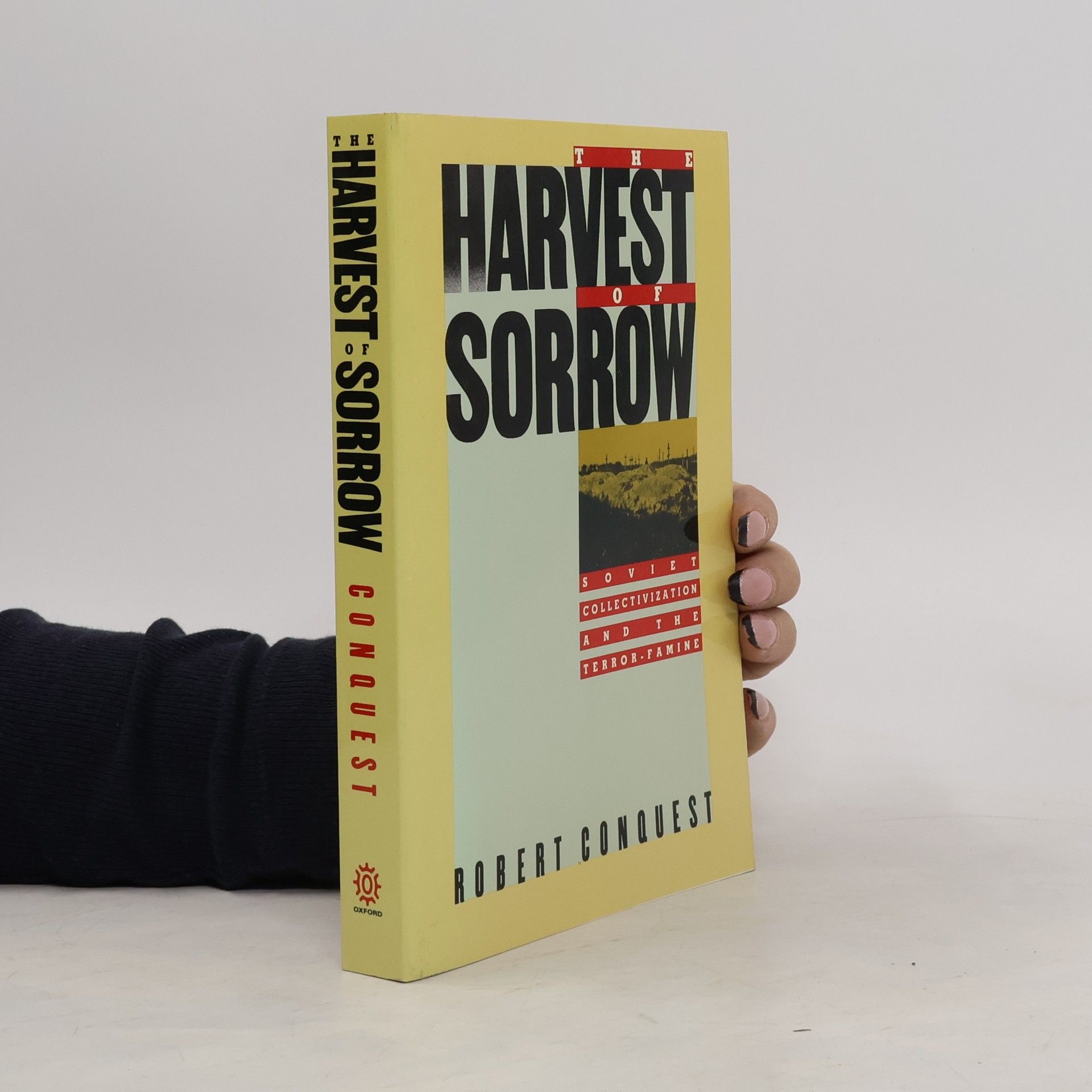
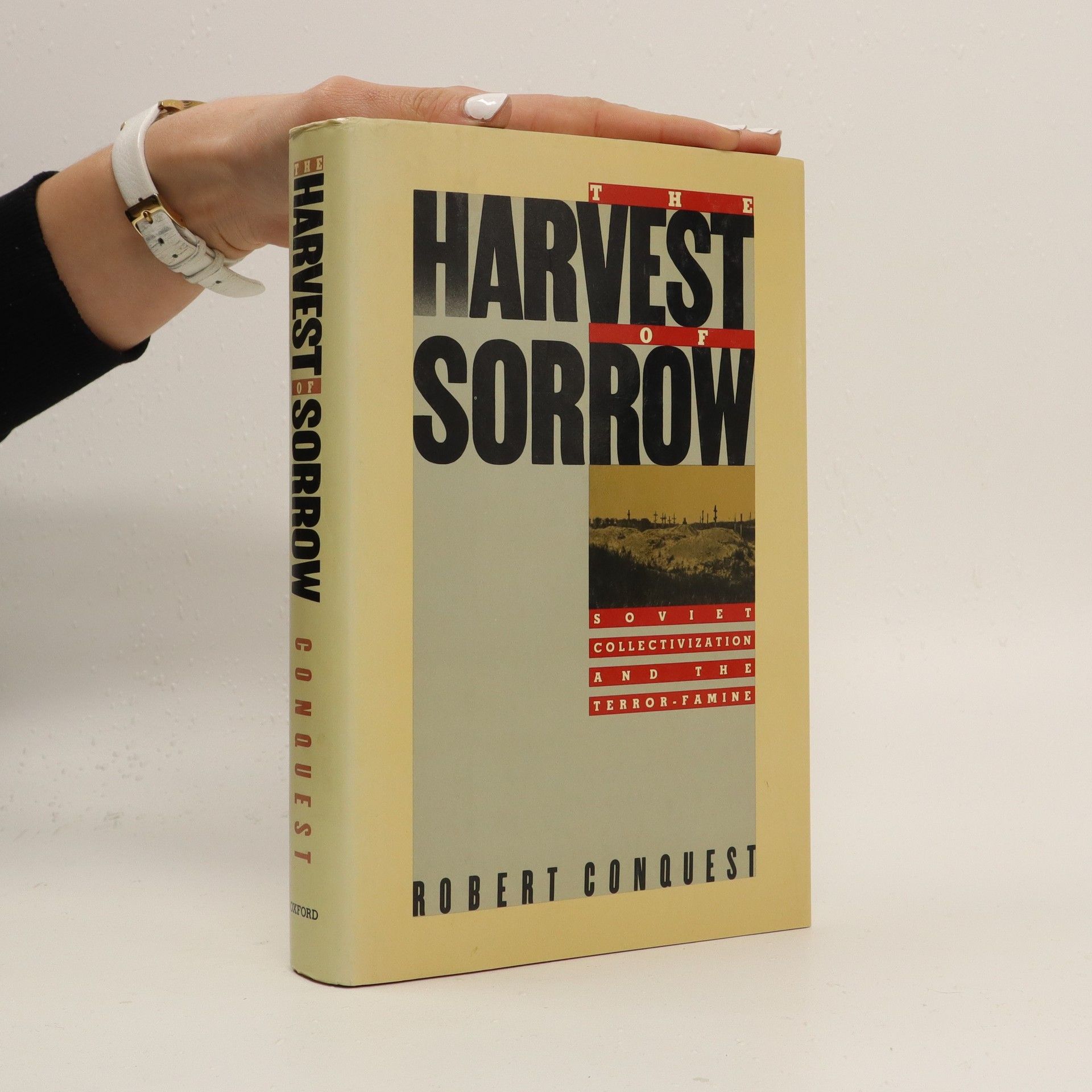
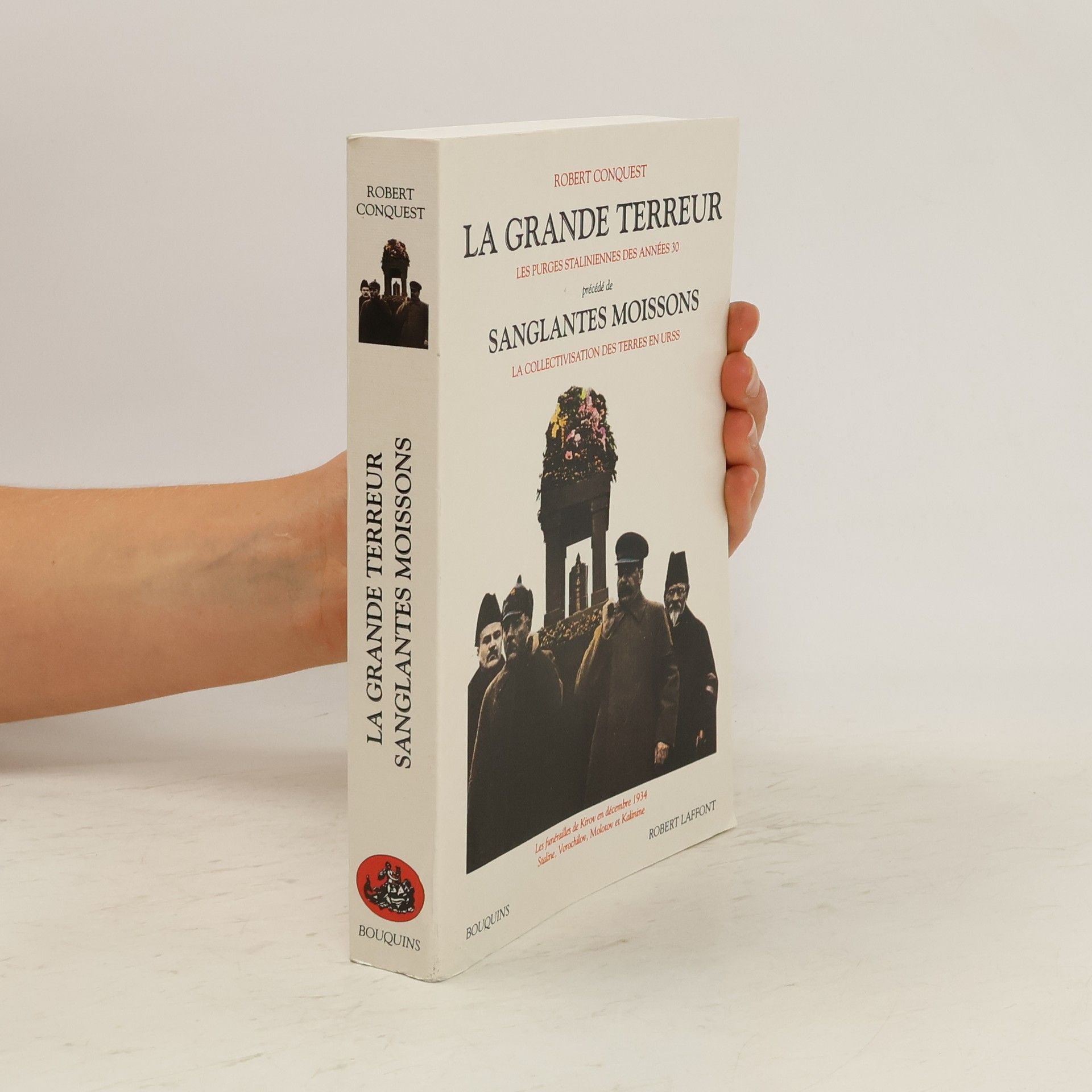
Les purges staliniennes des années 30
Chronicles the events of 1929 to 1933 in the Ukraine when Stalin's Soviet Communist Party killed or deported millions of peasants; abolished privately held land and forced the remaining peasantry into "collective" farms; and inflicted impossible grain quotas on the peasants that resulted in mass starvation
The Harvest of Sorrow is the first full history of one of the most horrendous human tragedies of the 20th century. Between 1929 and 1932 the Soviet Communist Party struck a double blow at the Russian peasantry: dekulakization, the dispossession and deportation of millions of peasant families, and collectivization, the abolition of private ownership of land and the concentration of the remaining peasants in party-controlled "collective" farms. This was followed in 1932-33 by a "terror-famine," inflicted by the State on the collectivized peasants of the Ukraine and certain other areas by setting impossibly high grain quotas, removing every other source of food, and preventing help from outside--even from other areas of the Soviet Union--from reaching the starving populace. The death toll resulting from the actions described in this book was an estimated 14.5 million--more than the total number of deaths for all countries in World War I.Ambitious, meticulously researched, and lucidly written, The Harvest of Sorrow is a deeply moving testament to those who died, and will register in the Western consciousness a sense of the dark side of this century's history.
When The Great Terror was first published in 1968, it was universally acclaimed as one of the most important books ever written about the Soviet Union. Now, in this revised and updated edition, Robert Conquest uses fresh and dramatic material, which has only recently become available, to give further depth and breadth to his history of the momentous years between 1934 and 1939, when millions of people died in Stalin's purges. His reassessment of its significance confirms the Terror as one of the most tragic and far-reaching human and political issues of our time.
A superlative collection of the finest SF short stories from recent years. Ten astounding writers explore one whole hemisphere of the imagination, providing an outlet, both refreshing and necessary, for modern man's sense of wonder. ------------------------------------------------- Introduction (Spectrum) • essay by Kingsley Amis and Robert Conquest The Midas Plague • (1954) • novella by Frederik Pohl Limiting Factor • (1949) • shortstory by Clifford D. Simak The Executioner • (1956) • novelette by Algis Budrys Null-P • (1951) • shortstory by William Tenn The Homing Instinct of Joe Vargo • (1959) • novelette by Stephen Barr Special Flight • (1939) • novelette by John Berryman Inanimate Objection • (1954) • novelette by H. Chandler Elliott Pilgrimage to Earth • (1956) • shortstory by Robert Sheckley Unhuman Sacrifice • (1958) • novelette by Katherine MacLean By His Bootstraps • (1941) • novella by Robert A. Heinlein
Of all the despots of our time, Joseph Stalin lasted the longest and wielded the greatest power, and his secrets have been the most jealously guarded--even after his death. In this book, the first to draw from recently released archives, leading USSR scholar-historian Robert Conquest gives us Stalin as a child and student; as a revolutionary and communist theoretician; as a political animal skilled in amassing power and absolutely ruthless in maintaining it. He presents the landmarks of Stalin's rule: the clash with Lenin, collectivization, the Great Terror, the Nazi-Soviet pact and the Nazi-Soviet war, the anti-Semitic campaign that preceded his death, and the legacy he left behind. Distilling a lifetime's study, weaving detail, analysis, and research, Conquest has given us an extraordinarily powerful narrative of this incredible figure--one of the most enigmatic and terrifying figures of modern times.
"Article 22 of the Constitution laid down a standard procedure for dealing with the present type of emergency..."But alas, it is completely beyond the power of Article 22 or anything else to protect the Metropolitan Egyptological Society from the Lee Eddington Schwartz disturbance which brews suddenly on a cold winter evening, or from the pyramiding alarms and confusions which follow.Should the reader be, at first, in some doubt as to the real nature of the activities of the Egyptologists, he must not be surprised. The members' expertise in camouflage and deception has baffled many perceptive persons. The Society has been suspected at various times of engaging in espionage, in drug-smuggling, in the activity implied by its all-male membership, and even in Egyptology.What is the Metropolitan Egyptological Society? What goes on behind the locked doors of its Isis Room? What is the significance of the safeguards listed in Article 22? Those who pursue these questions in the pages of The Egyptologists will come not only to the centre of the mystery, but also to one of the most outrageously funny spoofs of the season.